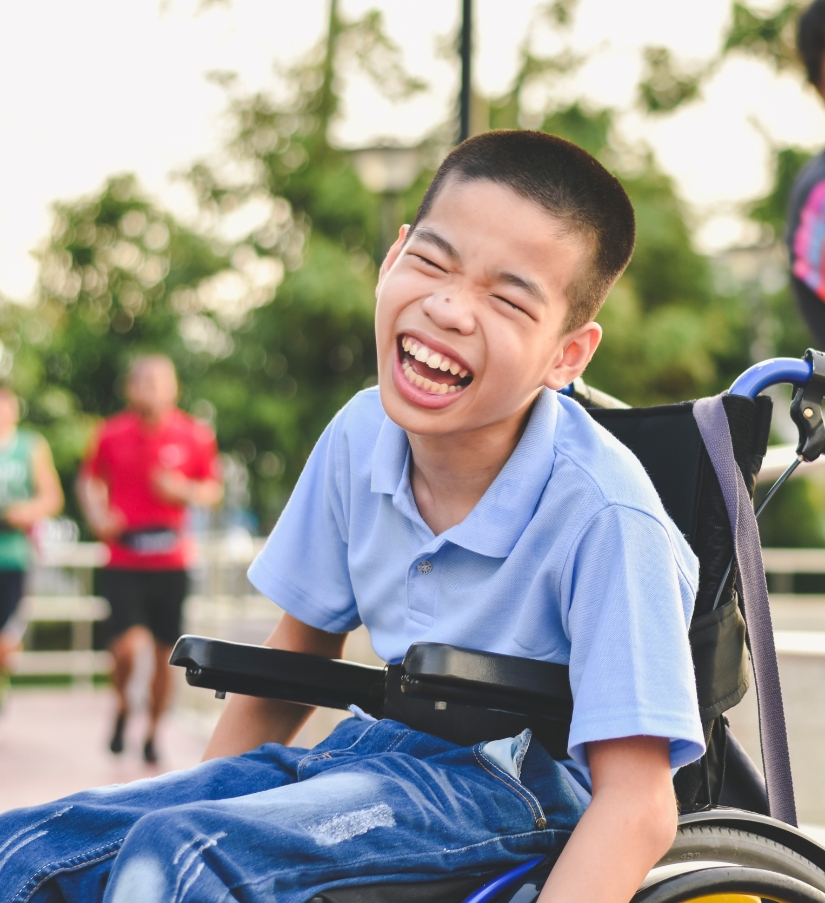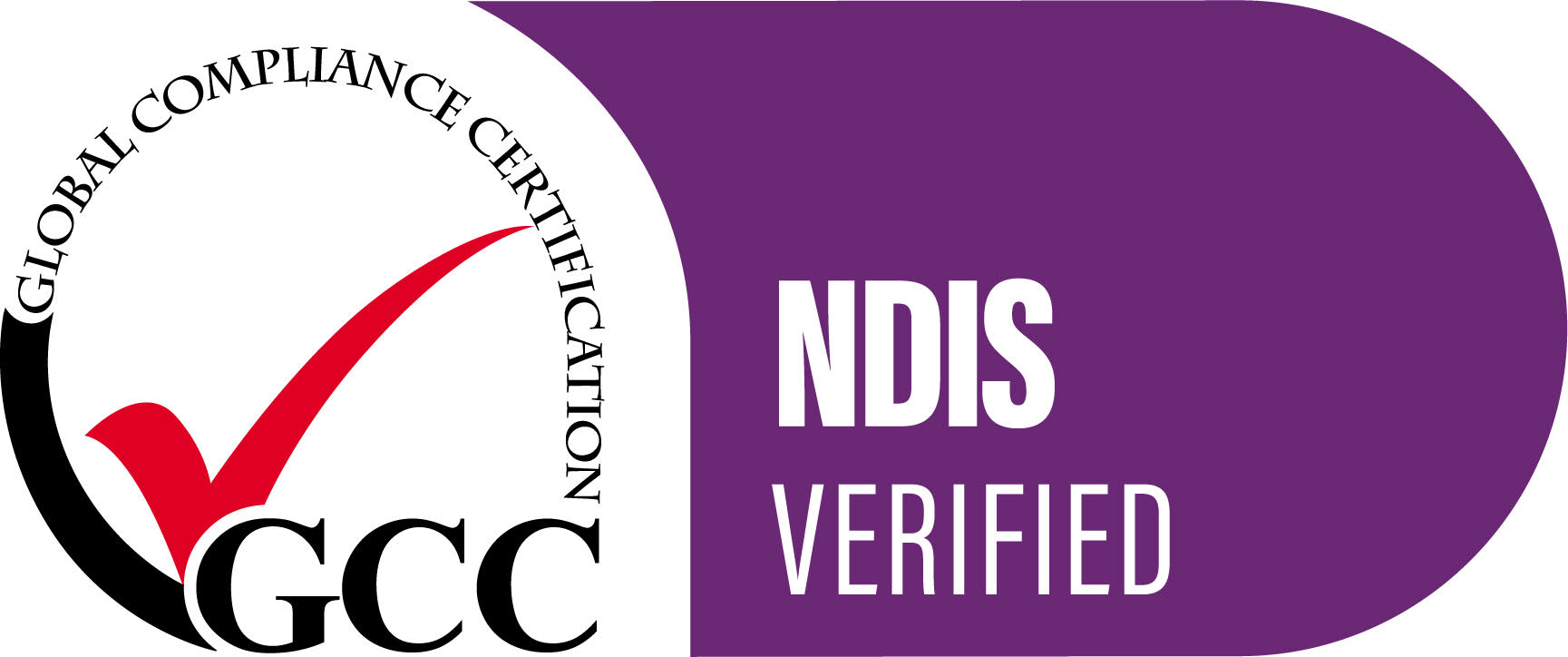Conditions We Support


Supporting the individual
Low support to high needs
Angelic Care support a diverse range of individuals with varying levels and types of disability, from slight disability requiring occasional support or low support needs through to those who need a higher level of support and suffer from significant disability.
We support individual’s suffering from disability through our diverse range of services including Individual Support, Community Social Support, Support Coordination, Allied Health Therapists, Supported Accommodation, Flexible Respite, Occupational Therapy, Physiotherapy, Speech Pathology, Transport Services, Short-Term Accommodation, Day Programs, Domestic Assistance, House Cleaning, Lawn House Maintenance and our Concierge Support Service.
Learn more about our services and how we can help you here.


The why behind Angelic Care
The main disability conditions that we support include:
Cerebral palsy is a group of disorders that affect movement and muscle tone or posture. It’s caused by damage that occurs to the immature, developing brain, most often before birth.
Signs and symptoms appear during infancy or preschool years. In general, cerebral palsy causes impaired movement associated with exaggerated reflexes, floppiness or spasticity of the limbs and trunk, unusual posture, involuntary movements, unsteady walking, or some combination of these.
People with cerebral palsy can have problems swallowing and commonly have eye muscle imbalance, in which the eyes don’t focus on the same object. They also might have reduced range of motion at various joints of their bodies due to muscle stiffness.
Down syndrome is a genetic disorder caused when abnormal cell division results in an extra full or partial copy of chromosome 21. This extra genetic material causes the developmental changes and physical features of Down syndrome.
Down syndrome varies in severity among individuals, causing lifelong intellectual disability and developmental delays. It’s the most common genetic chromosomal disorder and cause of learning disabilities in children. It also commonly causes other medical abnormalities, including heart and gastrointestinal disorders.
Better understanding of Down syndrome and early interventions can greatly increase the quality of life for children and adults with this disorder and help them live fulfilling lives.
Acquired brain injury is any damage to the brain that happens after birth. The specific symptoms or losses of functioning depend on which brain areas are affected.
Some of the causes include:
Alcohol or drugs – which can poison the brain
Disease – such as AIDS, Alzheimer’s disease, cancer, multiple sclerosis or Parkinson’s disease
Lack of oxygen – called anoxic brain injury (for example, injury caused by a near drowning)
Physical injury – such as an impact (or blow) to the head, which may occur in vehicle or sporting accidents, fights or falls
- Stroke – when a blood vessel inside the brain breaks or is blocked, destroying the local brain tissue.
It is common for many people with ABI to experience increased fatigue (mental and physical) and some slowing down in how fast they can process information, plan and solve problems. They may experience changes to their behaviour and personality, physical and sensory abilities, or thinking and learning.
Autism is a condition that affects how a person thinks, feels, interacts with others, and experiences their environment. It is a lifelong disability that starts when a person is born and stays with them into old age. Every Autistic person is different to every other. This is why autism is described as a ‘spectrum’.
While many Autistic people experience difficulties, with the right support Autistic people can achieve a great quality of life.
Autism is often linked with physical, developmental or mental health conditions such as intellectual disability, epilepsy, gastro-intestinal issues, ADHD, dyspraxia, anxiety or depression.
However, many of the disabling challenges associated with autism come about when individuals don’t have the respect, understanding and supports that allow them to be comfortable in a non-autistic world.
Neurological disorders are medically defined as disorders that affect the brain as well as the nerves found throughout the human body and the spinal cord. Structural, biochemical or electrical abnormalities in the brain, spinal cord or other nerves can result in a range of symptoms. Examples of symptoms include paralysis, muscle weakness, poor coordination, loss of sensation, seizures, confusion, pain and altered levels of consciousness.
The specific causes of neurological problems vary, but can include genetic disorders, congenital abnormalities or disorders, infections, lifestyle or environmental health problems including malnutrition, brain injury, spinal cord injury or nerve injury. There are many recognized neurological disorders, some relatively common, but many rare. Mental disorders, on the other hand, are “psychiatric illnesses” or diseases which appear primarily as abnormalities of thought, feeling or behavior, producing either distress or impairment of function.
Neurological disabilities include a wide range of disorders, such as epilepsy, learning disabilities, neuromuscular disorders, autism, ADD, brain tumors, and cerebral palsy, just to name a few. Some neurological conditions are congenital, emerging before birth. Other conditions may be caused by tumors, degeneration, trauma, infections or structural defects. Regardless of the cause, all neurological disabilities result from damage to the nervous system. Depending on where the damage takes place, determines to what extent communication, vision, hearing, movement and cognition are impacted.
Neuromuscular disorders affect the nerves that control voluntary muscles and the nerves that communicate sensory information back to the brain. Nerve cells (neurons) send and receive electrical messages to and from the body to help control voluntary muscles. When the neurons become unhealthy or die, communication between the nervous system and muscles breaks down. As a result, muscles weaken and waste away (atrophy).
There are many neuromuscular disorders, and treatment by an experienced multidisciplinary team, is vital.
These disorders result in muscle weakness and fatigue that progress over time. Some neuromuscular disorders have symptoms that begin in infancy, while others may appear in childhood or even adulthood. Symptoms will depend on the type of neuromuscular disorder and the areas of the body that are affected.
Some symptoms common to neuromuscular disorders include:
Muscle weakness that can lead to twitching, cramps, aches and pains, Muscle loss, Movement issues, Balance problems, Numbness, tingling or painful sensations, Droopy eyelids, Double vision, Trouble swallowing and/or Trouble breathing,
Types of neuromuscular disorders include:
Amyotrophic lateral sclerosis (ALS), Charcot-Marie-Tooth disease, Multiple sclerosis, Muscular dystrophy, Myasthenia gravis, Myopathy, Myositis, including polymyositis and dermatomyositis, Peripheral neuropathy and Spinal muscular atrophy.
The term Global Developmental Delay, or GDD, is used when a child shows delays across several areas of development. It is a general term used to describe any delay in the developmental period of a child between birth and 18 years.
These delays must have continued for at least 6 months, and are usually accompanied limited communication abilities.
GDD is believed to affect about 1-3% of the population.
There are many possible causes of GDD, some are permanent, but others aren’t. They include:
Premature birth, genetic conditions such as Down Syndrome, chromosomal conditions such as Fragile X, metabolic conditions such as thyroid function, problems in pregnancy or during birth such as heavy bleeding or lack of oxygen to the baby, vision or hearing loss, speech and language difficulties, injuries or infections of the brain such as head injury or meningitis, ongoing illness and lengthy hospitalisation.
Child development is complex and each child with GDD may present differently. There are many areas in child development that they may be delayed in. The delays may be in:
Speech and language development, gross motor development (walking, crawling), fine motor development (holding toys, drawing), thinking, understanding and learning, social interaction and how they relate to others (make friends), emotional regulation and/or tasks of daily living (getting dressed, toileting).
The motor neuron diseases (MNDs) are a group of progressive neurological disorders that destroy motor neurons, the cells that control skeletal muscle activity such as walking, breathing, speaking, and swallowing. This group includes diseases such as amyotrophic lateral sclerosis, progressive bulbar palsy, primary lateral sclerosis, progressive muscular atrophy, spinal muscular atrophy, Kennedy’s disease and post-polio syndrome.
Normally, messages or signals from nerve cells in the brain (upper motor neurons) are transmitted to nerve cells in the brain stem and spinal cord (lower motor neurons) and from them to muscles in the body. Upper motor neurons direct the lower motor neurons to produce muscle movements. When the muscles cannot receive signals from the lower motor neurons, they begin to weaken and shrink in size (muscle atrophy or wasting). The muscles may also start to spontaneously twitch. These twitches (fasciculations) can be seen and felt below the surface of the skin.
When the lower motor neurons cannot receive signals from the upper motor neurons, it can cause muscle stiffness (spasticity) and overactive reflexes. This can make voluntary movements slow and difficult. Over time, individuals with MNDs may lose the ability to walk or control other movements.
MNDs occur in both adults and children. In children, MNDs are typically due to specific gene mutations, as in spinal muscular atrophy. Symptoms can be present at birth or appear in early childhood. In adults, MNDs are more likely to be sporadic, meaning the disease occurs with no family history. Symptoms typically appear after age 50, though onset of disease may occur at any age.
Improving Quality of Life
How we work
Getting to know you is important to us. We pride ourselves on understanding you and your individual needs to provide you with the right support, however often you need it. Have a chat to one of our friendly client service managers today to find out how we can tailor a package to best meet your personal care needs.
With more then 30 years on the field experience in connecting allied supports and building personal care teams, we are here for you and or your loved ones.
We build highly trained teams for direct care and understand the high complex requirements to link you with the best professionals in the industry. We help you to achieve your life goals and learn new life skills.

Specialising in high complex care needs
What makes us different?
We offer services for adults and children throughout regional and metro Gold Coast down to Tweed South, Regional and metro Brisbane and surrounding areas, in their own homes, community settings and our Activity Bases. We have experienced, professional, friendly staff that are willing to go the extra mile.
Angelic Care offers flexible and responsive services enabling individuals and their families to dip in and out of different types of provisions as required to suit their fluctuating needs. Angelic Care can often provide services at short notice.
We're locally experienced
Being a locally run organisation means we know what there is to do on the Gold Coast and what support is available here better than anyone else. We have been working to support people with disabilities on the Gold Coast for ten years, with a combined expertise and case management experience of over 50 years.
We genuinely care about you
We don’t just say we care, we actually do. Our personal experience with disability means we know how important it is to take the time to get to know each of our clients, giving them the care and attention they deserve.
We celebrate the individual
We understand that a person’s disability is as unique as the individual so we work with you to understand your interests, goals and challenges first and regularly check in with you. We ensure your individualised supports are meeting your ongoing needs so you’ll never feel like your disability defines you.
We see opportunities
We constantly strive to create the best experiences possible for our clients, and that means being nimble, adaptable and listening to feedback. Being a small business means we’re open to listening to you about new ways of doing things and customising packages to suit your individual needs and lifestyle.

We're here to help
Interested in learning more?
Finding any of the information above confusing?
Don’t hesitate to give us a call or drop us a line.
Our team is available via phone from 9am – 4:30pm Monday to Friday.


